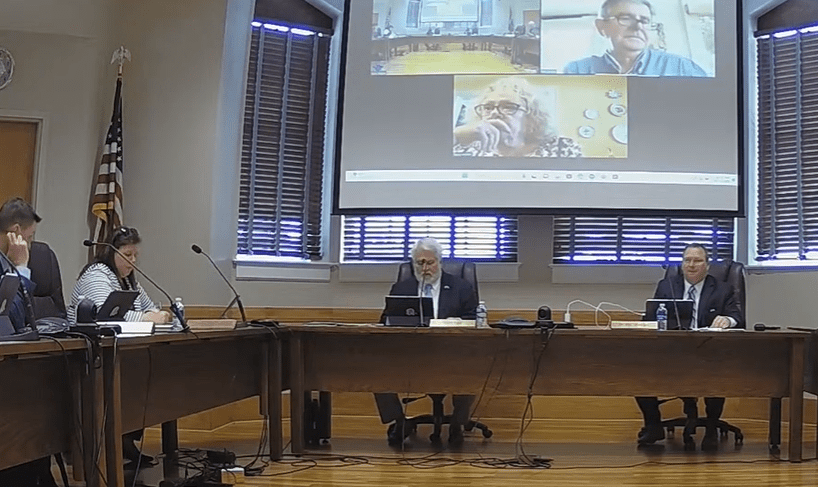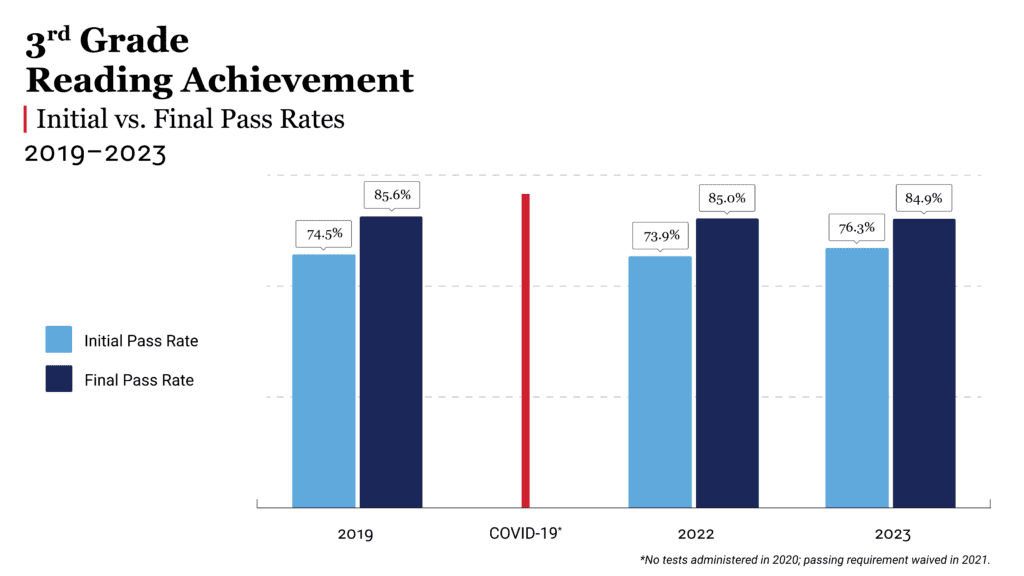
The Mississippi State Board of Education recently held its monthly meeting. ACT prep, teacher retention, and third grade reading assessments were among the matters discussed.
During last week’s monthly meeting, members of the Mississippi State Board of Education reviewed the results of a teacher retention survey and third grade literacy assessments. The Board also heard concerns that high school students are not prepared for the ACT.
High School Senior Student Representative Charlie Frugé said he’s been tutoring fellow Oxford High School students since he was a freshman. Over those four years he’s noticed an ongoing trend of students who are unprepared for the test, especially the English portion.
“Last month I tutored a dear friend; he’s a senior at Oxford High School. He’s an average student, he makes As and Bs,” Frugé said. “He had no clue what a subject and object was. He didn’t know what a noun was, or a verb.”
He added that this was not the first time.
“Dozens of my peers don’t know when to use a semicolon or a comma. They don’t even know what an em dash is. But that’s not their fault. After four years of the same conversation, in which I explain the basic properties of nouns and verbs to 18-year-olds, I find myself with one question. ‘How did this happen?’ They’ve been through 12 grades, they’ve had 12 English teachers. They’ve had 12 opportunities to learn basic grammar,” Frugé said. “But here we are and somehow it’s the job of a ninth-grade student at Oxford to explain to 18-year-olds what a noun was.”
While his prime example dealt with a student’s grasp of English, Frugé said there are gaps of knowledge in science, such as not knowing what an X axis and Y axis are.
Since Mississippi is one of 13 states in the nation that mandate taking the ACT in order to graduate from high school, Frugé said there is a need for more services to prepare students for the test.
“Now my peers lack the skills necessary to score well on the ACT. The Mississippi Department of Education finds it necessary that they take the ACT, therefore I find it necessary that they be prepared for the ACT,” Frugé said.
Education Board Chair Glen East tasked Frugé with asking his fellow students how they prepare and to find free methods to meet that need.
The Board also discussed the results of a recent teacher retention survey completed by educators in the state. The report found that teachers are more likely to continue teaching if they have access to strong mentorship, are provided with objective performance assessments, and can meet their economic needs.
Dr. Paula Vanderford, Chief Accountability Officer, said the aim of the survey is to have effective teachers and leaders in the schools.
Of the more than 31,000 teachers in the state, 9,488 indicated they would fill it out, but only 6,267 completed the 70-question survey, said Dr. Courtney Van Cleave, State Director of Educator Talent Acquisition and Effectiveness. Efforts are underway to make changes to the survey, such as making it shorter in the hopes of boosting completion rates.
One set of questions focused on what makes the mentor/mentee relationship more successful.
“So, we dug a bit deeper into that this year and surveyed teachers on some of the different factors of a mentor mentee partnership. Overall teachers highlighted the importance of teaching the same subject as the mentee as being the most important factor,” Van Cleave said.
Teachers also found mentors were most effective when they had 5 years more experience than the mentee, but there was a drop off when the mentor had over 15 years more experience.
Results of the survey also focused on working conditions. Van Cleave said gains were seen in relation to teacher performances being assessed objectively and how feedback helped them improve. But there was a complaint.
“In terms of the working conditions section of this survey, we saw an uptick in the number of interruptions that teachers are experiencing throughout the instructional day,” Van Cleave said.
She suggested finding another system of communication to reduce using the intercom or class runners.
External economic pressures were also cited in the survey, such as rising fuel costs and insurance. The number of respondents to the survey who felt additional pay raises would help with teacher recruitment and retention rose from 54 percent in the 2021-2022 school year to 65 percent in 2022-2023.
However, respondents in the survey noted pay was not the only reason they continued to teach.
“And it didn’t come as necessarily a surprise, but teachers certainly reiterated that they primarily continue in the classroom because of their students,” Van Cleave said.
Board members also heard about the results of the third grade reading assessment. Kristen Wynn, State Literacy Director for K-12, said the final pass rate currently sits at 84.9 percent. In 2019, that rate was 74.5 percent. The initial rate was 76.3 percent, but after the final retests were administered it reached 84.9 percent, nearly the same as the 2019’s 85.6 percent and 2022’s 85 percent. According to a press release from MDE about the results, students are given three chances to pass the test.

“However, if you factor in our good cause exemptions, we are sitting at around 92.8 percent of our third graders promoted to fourth grade,” Wynn said.
Wynn said there are local requirements within each school district that could result in a student being retained to the third grade, even if they passed the reading part of the assessment.
“We want to improve literacy outcomes for all of our students. Our goal is to have 100 percent of our students passing third grade reading assessment,” Wynn told the Board.











